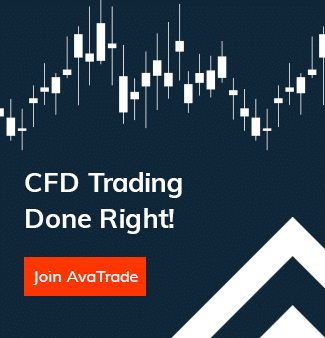BARCLAYS Stock
| MT5/MT4 Symbol:_BARCLAYS |
| Instrument:BARCLAYS |
| Country:UK |
| Currency:GBP Penny |
| Exchange:London Stock Exchange |
| Trading Hours (GMT):08:00-16:29 |
Trade BARCLAYS Stock
Once touted as the only company ‘fluent in finance’, Barclays plc has grown to become one of the most powerful companies, not only in its field but in the entire world.
Barclays was founded on 17th November 1690, by John Freame and Thomas Gould, who were operating a goldsmith business in Lombard Street, London. They were later joined by James Barclay, a businessman, in 1736 and his name has stuck to this date. Barclays is headquartered in London, United Kingdom, and its longevity in the wake of multiple financial crises, world wars, industrial revolutions, and even technological advancement, is a testament to their solid philosophy of innovation in line with their stated purpose of ‘creating opportunities to rise’. Barclays was the first UK bank to launch cash dispensers in 1967, and in 1977 it also became the first to introduce personal bankers. In 1987, it introduced the UK’s first debit bank.
Barclays held its IPO on November 1st, 1953 and is listed on the London Stock Exchange (LSE) under the Premium Equity Commercial Companies category. At the LSE, Barclays trades under the ticker symbol BARC, and it is also part of the major FTSE indices (FTSE 100, FTSE 350, FTSE Eurotop 100 Index and FTSE Eurotop 300). The company is also cross-listed on the New York Stock Exchange, where it falls under the Financial Services industry, and trades under the ticker symbol BCS.
Barclays is a transatlantic banking group that operates in two segments: Barclays UK and Barclays International, and offers products in 4 categories: Retail banking, Commercial Banking, Investment Banking and Wealth Management. Retail banking has mainly been the most profitable sector for Barclays, but the bank also focuses on investment banking, which is seeing continuous growth. Barclays has always sought to maintain an active portfolio, and over the years, the bank has been engaged in acquisitions and divestitures. Its most notable buys include Nile Bank, Standard Life, Oakes Millers, First Assurance and the core business of the defunct Lehman Brothers.
Friedberg Direct Barclays Stock Trading Information
- MT4 Symbol: BARCLAYS
- Trading Hours: Monday – Friday 08:00 – 16:29 London Time GMT
- Country: UK
- Currency: GBP Penny
- Exchange: London Stock Exchange
- Leverage: up to
- Minimum Trade Size: 100
Trade Barclays stock with Friedberg Direct and enjoy the benefits of trading with a regulated broker!
Barclays Stock History
Since January 2019, Barclays has had 3 stock splits:
- 7-for-5 in June 1990;
- 4-for-1 in May 2002;
- and finally, 1085-for-1000 in September 2013.
As of December 2018, Barclays stock was trading at circa £150 per share with a market capitalisation of £25.8 billion.
As a highly influential player in the financial scene, Barclays has always seen its stock mirror the economic cycles of boom and bust. The stock had its most impressive multi-year rally from the mid-1990s that topped out at an all-time high of £790 per share on February 2007, just shortly before the global financial crisis. It tumbled quickly after that to an all-time low of £64 per share by March 2009. It attempted a recovery after that, which was capped at below £400 per share on October 2009, and it has never broken that psychological price barrier since. As of December 2018, the stock price has been trapped in a range between £130 and £330.
Despite operating in an uncertain and dynamic business environment, Barclays has been a regular dividend payer. As of January 2019, the company has paid semi-annual dividends, but it has always adjusted its payout timetable according to the business environment or profit margins. Since 2000, Barclays has averaged a dividend yield of 3.36%, with the highest-ever dividend yield standing out at 10.95% in 2007 and the lowest ever at 0.33% in 2009. Over the long term, Barclays maintains that it seeks to pay out a significant portion of its earnings in dividends to shareholders. This effectively makes Barclays stock a great pick for investors who value income.
How to Trade Barclays Stock
Here are the factors investors should consider before trading Barclays shares:
- Tariffs and Trade Agreements
As a transatlantic bank, Barclays is exposed to various tariffs and trade agreements that may take place between different jurisdictions. As well, Barclays has a strong presence in both the UK and US. As of January 2019, the US was in the middle of renegotiating its trade deals, with a strong focus on protectionism, advanced by President Donald Trump’s ‘America First’ rhetoric. In the UK, Barclays faced a different monster altogether: Brexit, which was expected to take place in March 2019. With Brexit negotiations characterised by hard lining, the prospects of a ‘No-deal’ were higher than ever, and this would mean a potential slowdown in the UK’s economy – a situation that would pressure Barclays share prices lower.
- Introduction of Disruptive Technologies
Since 2009, the emergence of disruptive technology, such as blockchain and cryptocurrencies, has posed a significant existential threat to banks and the banking industry. Banks have, for years, served as trusted third parties between transacting parties, but cryptocurrencies eliminated the need for them by facilitating cheap, instant and secure peer-to-peer transactions. Their popularity has led to the emergence of a whole new industry with new businesses, such as crypto exchanges and mining firms. If other disruptive technologies emerge, this could negatively impact banks and the pressure on bank stocks could be too heavy to handle.
- Legislation or Taxation Policy
As a bank with global operations, Barclays remains vulnerable to changes in legislation or taxation policies in different jurisdictions. Traditionally, bank legislation, or broadly regulation, has always been reactive rather than proactive. Regulatory changes have always responded to the state of the economy, and sometimes they have been politically instigated. This poses a spontaneous risk to banks such as Barclays.
- Competitor Performance
Banking is a cut-throat industry driven hugely by customer perception. A weak performance compared to a competitor can inspire both investor and customer flight. It is important to assess how competitors are performing, and whether they are gaining or losing ground against Barclays.
- Periodical Earnings Reports
Barclays fiscal year runs from January to December, and the company releases quarterly reports that serve as a barometer for its performance. Shareholders are updated on the business health of the bank and how the different reporting segments are performing. It is important to track the release of these reports because earnings remain one of the biggest catalysts of price movement of the underlying stock. When studying these factors, it is prudent to determine their potential short to medium term impact on the stock, because over the long run, most factors are usually discounted on the prevailing price.
Disclaimer: This is a general analysis and not to be viewed or construed as actual trading advice or a recommendation of any kind and just an example of how a particular instrument could, potentially, be traded.
Why Trade Barclays Stock with Friedberg Direct
- Regulation – Friedberg Direct, a division of the Friedberg Mercantile Group Ltd, is a member of the Investment Industry Regulatory Organization of Canada (IIROC) and a member of the Canadian Investor Protection Fund (CIPF).
- A Wealth of Trading Instruments – Friedberg Direct provides a wide range of trading instruments, such as Forex pairs, Commodities, Indices, Stocks and Bonds. Friedberg Direct is also one of the few companies that offer Vanilla Options
- Leveraged trading – Friedberg Direct offers leverage on CFDs, which gives investors the chance to potentially maximise their profits even with a low capital outlay. Direct access to global equity markets. Alongside Barclays stock, there are many other stock CFDs and other assets such as forex and commodities from all the major world exchanges available to trade with Friedberg Direct.
- The Metaquotes trading platforms suit both short – and long-term trading styles. Traders can also choose to trade on desktop or mobile, for convenience and flexibility. They can also trade on a variety of trading platforms, such as the MT4 and MT5 and the exclusive Vanilla Options app – AvaOptions.
Trade Barclays stock with Friedberg Direct – a regulated Canadian broker. Start Trading Now!
Disclaimer: Please note these are stock CFDs (Contracts for Difference)
When you enter into a CFD trade you don’t buy the actual stock itself but instead agree on a contract with the broker to settle the difference in value between the entry and exit price of the Stock based on the price the stock is trading at on the Exchange it is listed. That means when you trade Stocks CFDs with Friedberg Direct you get a flexibility that stock market rules often make very difficult or even impossible for some.







